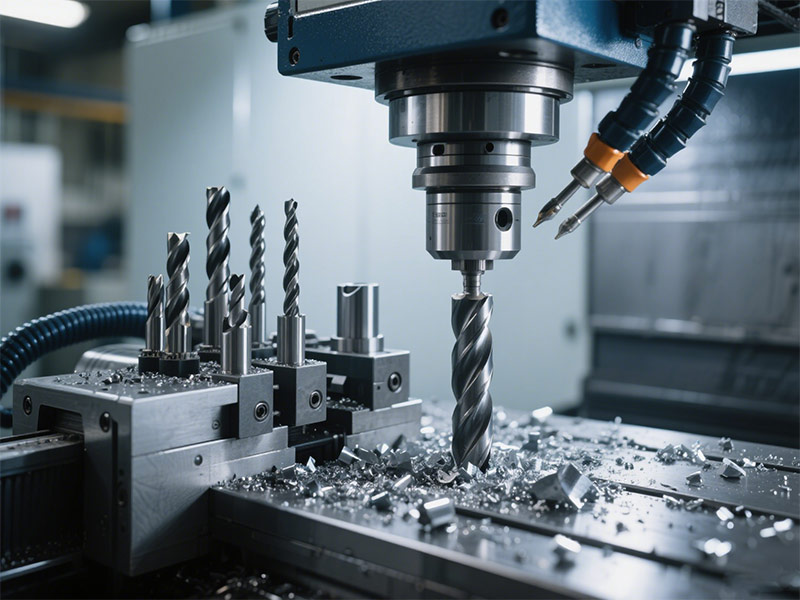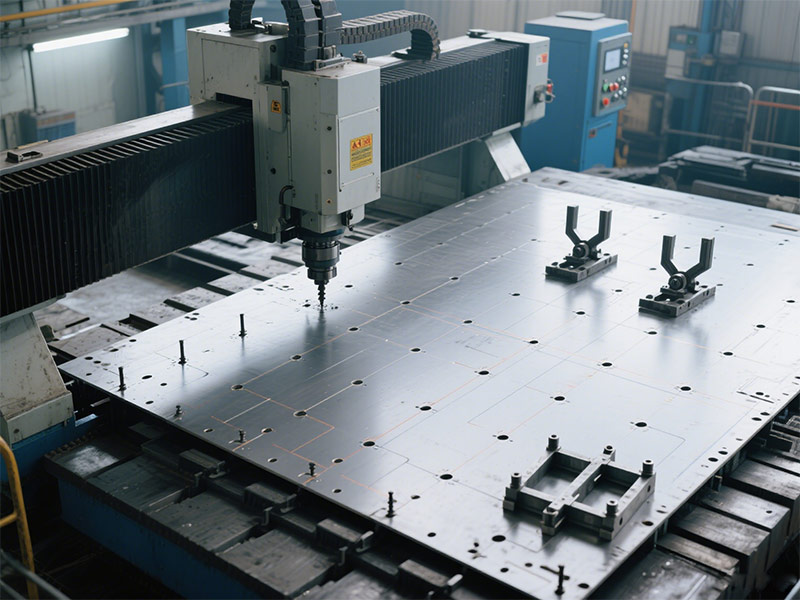-
 Call Now ! +86-13912367818
Call Now ! +86-13912367818 -
 Email Now info@wxhlhg.com
Email Now info@wxhlhg.com


Shipbuilding is a challenging industry for the metalworking industry.
Whether it's delicate pipes, plywood, or massive ship structures, precision machining is essential.
CNC drilling machines, which automatically and precisely drill holes in thick metal plates and structural components, are indispensable equipment in modern shipyards.
Shipbuilding requires meticulous attention to detail to avoid the risk of water seeping in through gaps and sinking the vessel. Shipyards all over the world utilize machines like CNC drilling equipment to do what they do because of these stringent regulations.
I'll discuss the main uses and advantages of CNC drilling technology in shipbuilding, and also how this technology is altering the way shipyards around the world work, making them more efficient and competitive.

CNC drilling machines automate drilling on a variety of materials, with a focus on heavy-industry metals. CNC machines use pre-programmed instructions to make holes that are always identical in dimensions, at the same depth, and with the same degree of accuracy, unlike manual or semi-automatic drills.
CNC drilling machines are particularly helpful in shipbuilding because they can work with very large steel plates and structural beams. Advanced technologies work precisely with CAD/CAM software, which lets shipbuilders provide digital models erect to drilling operations. This integration makes sure that each hole is exactly where it needs to be, which is essential for joining components like hull plates, bulkheads, and superstructure elements.
A CNC drilling machine for metal is made to cut through thick, strong steel alloys that are often utilized in naval engineering. The CNC technological advances make sure that drilling stays fast, accurate, and efficient, whether it's carbon steel for the hull or stainless steel for tubes and fittings.
Shipbuilding is a large assembly work requiring thousands of metal components to fit together properly. Even tiny errors in drilling may cause items to be stuck in line, cost plenty of cash to fix, or render items less secure. The CNC drilling service is extremely helpful here.
In the past, others would measure, mark, and drill holes together, which could lead to errors. CNC drilling, on the other hand, automates the process, which makes it far more precise yet less work-intensive.
One of the more significant reasons why CNC drilling is essential for shipbuilding fabrication is:
1. The holes are drilled exactly to the exact needs, which ensures that the framework is positioned correctly.
2. In terms of efficiency, the turnaround times for large plates and beams need less time.
3. Every hole is identical, which prevents the prospect of errors in jobs that are repeated.
4. Flexibility refers to being able to drill cuts of different sizes and lengths without having to alter your setup often.
Shipbuilding requires this level of precision and reliability since the strength of hulls, decks, and supporting structures depends on the way they fit and connect.
The hull is the primary component of any vessel. It is made up of huge steel plates that need to be cut and drilled very carefully for welding and bolting. A CNC drilling machine makes sure that these holes are correctly lined up, which has a direct effect on the structure of the vessel.
Deck plates and bulkheads frequently require dozens of drilled holes for fittings, reinforcements, and places to connect things. Shipyards may complete these constant jobs more quickly with a CNC drilling machine for metal, while they can also keep things in line in large areas.
Ships need complex pipe systems to get fuel, water, and exhaust. To be sure that these pipes and support structures are set up correctly, they need precise holes. CNC drilling services are a reliable approach for working on these components without any delays.
Shipbuilders often need customized parts for specific projects in addition to typical production. CNC drilling lets shipyards render traditional hole patterns and work with designs that aren't standard swiftly and easily.
Shipyards cut the processing time a lot by automating drilling operations. A CNC drilling machine can now finish drilling large steel plates in minutes, as opposed to hours.
Shipbuilding fabrication requires to be uniform. CNC drilling eliminates the risk of flaws caused by human beings, ensuring that every hole is drilled precisely as it ought to be. Thus, this ends up in a smoother assembly and less rework.
When working with expensive marine-grade steel, accurate drilling is crucial for minimizing mistakes and material loss.
Shipyards may reduce labor costs while increasing output using a single CNC metal drilling machine that can replace multiple employees.
Drilling by hand on large steel plates can be hard on the human body and risky. Automation reduces hazards and makes workplaces safer.

Shipyards need to think about plenty of issues when they purchase CNC technology:
The bed size should be sufficient for huge ship plates, and the spindle power should be sufficient to drill through thick steel.
A CNC drilling machine for metal should be capable of functioning with carbon steel, stainless steel, and other metals that are often used in shipbuilding.
Being capable of working with CAD/CAM systems makes it simple to transfer design files to drilling operations.
To program and maintain CNC machines operating well, operators need to be skilled.
Support and Maintenance Regular maintenance and technical support ensure the equipment continues to function over a long time.
To be competitive in today's global market, the shipbuilding industry needs to be quick, precise, and effective. The CNC drilling machine has altered how shipyards carry out essential drilling jobs, from causing the hull to custom outfitting.
By using automation, shipbuilders may produce items faster, make fewer errors, and render things safer, all while reducing costs. The technology ensures that current vessels are built to the highest standards of accuracy and reliability, whether they use in-house machines or employ out CNC drilling services.
The CNC drilling machine for metal remains a vital component of shipyard productivity, even as novel innovations arrive. It will also lead the way in shipbuilding fabrication within the world.
A CNC drilling machine may operate with carbon steel, stainless steel, aluminum, and other alloys that frequently feature in navy engineering.
CNC drilling services offer precision drilling as a service, which conserves shipyards' money on large machinery while ensuring that the quality stays the same.
CNC drilling ensures that every ship has thousands of precisely drilled holes. This makes sure that the work gets done just the first time, eliminates rework, and accelerates the production process.
Leave a Reply